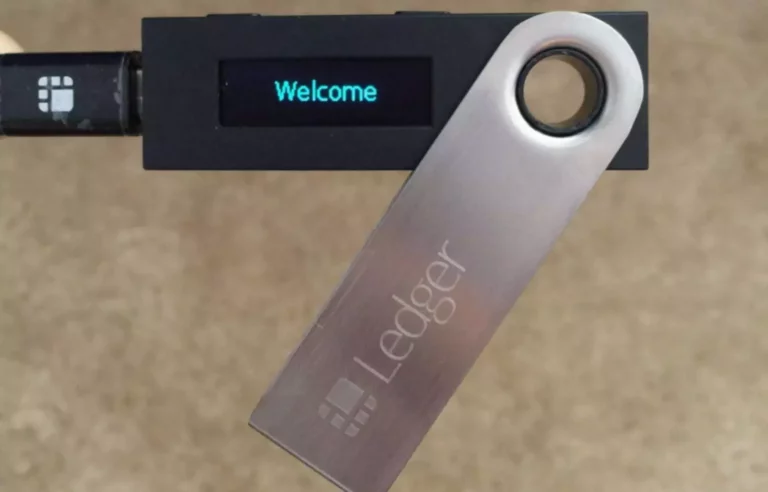Your cart is currently empty!
The ultimate guide to MPC Wallets: Everything you need to know
Content
MPC Wallet solutions offer institutional-grade security, ensuring the safe storage and transfer of high-value assets. Decentralized finance Additionally, built-in compliance features like AML and KYC streamline regulatory adherence for these enterprises. This article goes deep into the world of MPC Wallet solutions, highlighting their architecture, benefits, and why they are the best choice for companies.
How to develop a Blockchain dApp?: The ultimate dApp guide for business owners
This ensures that even if an attacker compromises one party, they cannot gain full control over the wallet or the assets. By leveraging MPC technology, MPC wallets offer a secure and efficient way of managing digital assets. Multi-party computation (MPC) is a cryptographic technique that allows multiple parties to jointly compute a function without revealing their individual inputs. This technology has numerous practical applications, including the mpc crypto secure storage and transfer of digital assets in MPC wallets. An MPC wallet is a powerful type of smart contract wallet that provides enhanced security, flexibility, and control over digital assets on Ethereum & EVM-compatible blockchains.
Are MPC wallets EVM-compatible?
By leveraging the robust APIs and SDKs provided by MPC wallet-as-a-service solution providers, these platforms can offer secure and scalable wallet solutions that cater to a diverse range of users. MPC wallets play a crucial role in the web3 ecosystem — providing enhanced security, flexibility, and control for the web3 wallet experience. Multisig wallets were introduced for multiparty transaction https://www.xcritical.com/ signing in Satoshi’s Bitcoin white paper in 2011. The first MPC wallet was introduced in 2018, and provided considerable enhancements over multisig. This Top 5 Reasons blog provides additional comparisons of MPC wallets using threshold signatures and multisig.
MPC wallets vs. Multisig wallets

In this scenario, the employees would use a multi-party computation (MPC) protocol to calculate their average salary without disclosing sensitive or private information. The MPC protocol would employ a well-known cryptographic technique called additive secret sharing, which involves dividing and distributing a secret among a group of independent parties. As a result, an external party could determine the average salary without interacting with the employees directly. This potentially starts from the decentralized control of the keys – an element that greatly boasts the promise of security features, revealing advantages in digital asset handling through any enterprise whatsoever. The combination of these features makes MPC Wallet-as-a-Service (WaaS) an indispensable tool for modern enterprises seeking robust crypto asset management solutions.
Reliable Wallet Management Solutions For Digital Asset
And whilst there are some MPC custody solutions out there, their focus is mostly on large institutional clients like banks and hedge funds. MPC wallets offer keyless security by eliminating the need for a single private key, reducing the risk of theft. TSS divides a private key into multiple parts, requiring a threshold to sign transactions, making it harder to compromise. Multisig and MPC wallets were both designed to increase privacy and enhance security, but their working mechanisms are different. Secure your digital assets and manage how your transactions are carried out with Bitpowr’s flexible approval, withdrawal, and other efficient streamlined policy settings. MPC wallets protect the users’ data privacy too, as they do not reveal any private information or secret data to each other or to a third party.
By leveraging MPC technology, MPC wallets offer enhanced security, flexibility, and control for the web3 wallet experience, enabling a better user experience than traditional wallets. In an MPC wallet, the private keys which users require to access and manage their crypto assets are split into multiple parts known as “shares”. Moreover, transactions can be authorized by attaining a required threshold of shares instead of requiring all or none of the shares. This eliminates a single point of failure and enhances the security and availability of the wallet. The evolution of cryptocurrencies and blockchain technology is showing no signs of stopping, hence, the requirement for secure, scalable, and user-friendly wallet solutions has hit all-time high levels.
Another MPC node hosted in a user’s mobile phone further elevates security and accessibility by introducing another secure and highly decentralized hosting environment. This combination of advanced security with multiparty control makes MPC the ideal choice for institutional MPC wallet applications. MPC is of course protocol agnostic, but creating a multi-chain wallet is still a lot of work.
There are a few limitations that developers and the broader community should be aware of when using MPC wallets, including computational overhead and high communication costs. With the integration of all these characteristics, MPC Wallet-as-a-Service (WaaS) becomes a necessity for modern organizations to achieve full management of their cryptocurrencies. This guide is of value to any financial institution, fintech startup, or crypto exchange that needs to understand how to implement the MPC Wallet Solution and what benefits it has. Krayon’s WaaS API comes with a fully customisable governance layer, giving you granular control over wallet permissioning and access. If you have any questions, join 33,000+ other builders in our Discord community — or reach out to the team directly for more info on how to integrate MPC wallets into your web3 apps. Easily comply with anti-money laundering guidelines, safeguard your financial institution and customers from bad actors and improve transaction security with KYT audits.

Enjoy bank-grade security and faster transactions powered by an MPC-based vault, the highest security level in key management encryption. Our MPC Wallet features a Threshold Signature Scheme (TSS) which offers absolute protection of assets from external hacks and insider threats. With TSS, a threshold of active signers must be met before a transaction can be authorized. Thanks to the MPC, there is no way to know which signatories signed, so security and privacy are ensured. MPC is a technology and it can be applied to solve a wide range of security and privacy challenges. As a result, any vendor using some form of multi-party computation may claim to offer an MPC wallet, but the security efficacy and trustworthiness of those wallets can vary widely.
- In general, such ventures often find themselves struggling with securing digital assets safely while also trying to maintain frictionless user experiences.
- Launched in 2019 as the first consumer-facing MPC wallet, Zengo now boasts 700,000+ global customers, multichain support, and 24/7 live in-app customer service.
- Different MPC wallets offer different features and services that can enhance your crypto experience.
- In conclusion, Multi-Party Computation (MPC) wallets have emerged as a sophisticated solution for ensuring the security and privacy of digital assets.
- MPC is a critical technique that provides a trustworthy solution to the problem of data security and privacy, especially in the context of blockchain applications.
- Fireblocks is an institutional digital asset custodian that offers an MPC wallet with support for over 30 blockchain protocols and 1,100 tokens.
Well-known financial companies have started using MPC to keep their assets safe from both inside and outside threats. Eniblock offers a comprehensive MPC Wallet-as-a-service solution through its Web3 SDK tailored for enterprises and brands. Its all-in-one SDK solution is designed by developers with web2 expertise to streamline the transition to the decentralized web.
In the case of an MPC wallet, the private key is split into various shares, with each share being distributed to different parties, such as wallet users or trusted servers. MPC is a keyless system that replaces the private key with individual key shares separately generated by multiple non-trusting parties without sharing any data. Transactions are signed, approved and broadcast with a single signature and the signers’ key shares never become public information, or even leave their holder’s domain. Similar to multisig, MPC requires multiple trusted third parties to authorise transactions before they can be executed.
By leveraging MPC technology, web3 wallets can provide a better user experience and make digital asset management more secure and efficient. It is a method of cryptography that can improve security by splitting private key information into fragments distributed among more than one party. In some cases, it may be possible to recover lost private key shares, depending on the wallet provider’s specific implementation of MPC technology. Some providers offer key recovery services or allow for the regeneration of key shares using backup information, such as a recovery phrase.
E-commerce platforms that accept cryptocurrencies as payment leverage MPC wallet-as-a-service solution providers to manage secure transactions. These wallets not only facilitate instant and low-cost payments but also safeguard sensitive user information through advanced cryptographic techniques. An MPC Wallet is a type of smart contract wallet that leverages Multi-Party Computation to securely manage digital assets on the Ethereum blockchain. With SSS MPC wallets, a single private key is divided into shares and distributed to multiple parties. An MPC Wallet is a type of smart contract wallet that uses Multi-Party Computation to manage digital assets on the Ethereum blockchain securely. An MPC wallet operates through Multi-Party Computation (MPC), a cryptographic technique that allows multiple parties to jointly compute a function without revealing their individual inputs.
When a transaction is initiated, the involved parties—typically the user and the wallet provider’s server—start an MPC protocol to jointly sign the transaction. Each party holds a share of the private key, which they use to compute their individual signature shares. Yes, you can transition from a single-signature wallet to an MPC wallet by creating a new wallet and transferring your assets. While no wallet is completely immune to hacking, MPC wallets provide enhanced security compared to single-signature wallets due to the distributed nature of private keys. When a transaction is initiated, the parties, typically the user and the wallet provider’s server, commence an MPC protocol to jointly sign the transaction. Fireblocks is an institutional digital asset custodian that offers an MPC wallet with support for over 30 blockchain protocols and 1,100 tokens.
Leave a Reply